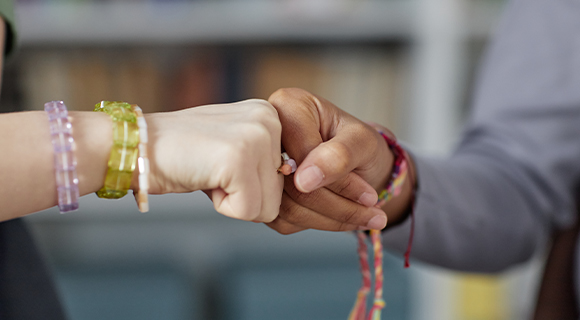
A deep change in adolescence therapy is the time for development and search, but it also comes with its own set of unique challenges that can greatly affect mental health. By navigating social pressure and trying to create a personal identity, teenagers are often trapped in a tornado of emotions and expectations. Youth medicine equipment provides young people with the confidence to handle these infections with confidence.
We will discover a number of therapies that are particularly suitable for youth, for practical strategies to promote the benefits and flexibility, and the healthy development of these medical approaches. Join us because we highlight methods that can strengthen teens to navigate the challenges of targeted therapy and emerge strong, healthy, and more self-monitoring.
Understand the unique challenges that teenagers face.
Physical and emotional changes
Adolescents experience a series of significant physical and emotional changes that can greatly impact their mental health. Hormonal shifts during this stage affect both the body and brain, which can contribute to anxiety and depression.
Social pressure
On top of these physical and emotional changes, the youth meet many social pressures. Greater pressure, social media effects, and educational stress are just a few examples. The prevalence and use of social media can increase these feelings, as teenagers are constantly compared to other people's curated lives.
Identity and freedom
Youth is also an important time to create an identity and demand freedom. Young people begin to question who they are and what they think is often used with different identities and behaviors. These conflicts, although a common part of development can cause stress and emotional changes during this time.
Cognitive Behavioral Therapy (CBT)
Learn methods that can help reduce cognitive behavioral techniques, such as idea posts or behavior testing, to reduce anxiety. Provide families to practice simple CBT exercises to practice at home.
One in 10 children suffers from an anxiety diagnosis, and the age it appears is between 3 and 17 years. Cognitive behavioral therapy (CBT) is a form of conversation therapy designed to help people recognize harmful ideas and understand the effect of these ideas on their actions and behaviors.
When your child is struggling with anxiety or negative thinking, the cycle can feel difficult to break, but cognitive behavioral therapy (CBT) can be possible. CBT helps children know how to identify the pattern, challenge unexpected ideas, and create self-confidence through small, stable steps.
-
Exposure and Tolerance
-
Mindfulness Techniques
-
Challenge Negative Thoughts
-
Coping Mechanisms
Family Therapy
They are deeply affected by the family systems around them. Family medical parents, brothers, and sisters, and sometimes bring the family together to work with communication, understanding, and support.
This is especially useful when conflict at home affects a teenager's goodness. By taking up misunderstandings and creating mutual trust, you help improve family medical conditions and create a more supportive home environment for everyone involved.
Benefits of therapy for children and teens
-
Enhancing Emotional Regulation
-
Improved communication skills
-
A higher level of resilience
-
Reduction of anxiety and depression
-
Improved self-esteem
-
Methods of healthy coping
-
Improved relationships
-
Conflict Resolution Skill
-
Improved Academic Performance
-
Better Behavioral Management
-
Increased Mindfulness
-
Support for Trauma and Grief
-
Personal Growth and Development
These strategies may involve techniques like
-
Deep breath: Slowly, focusing on deep breathing can help calm the mind to calm and reduce anxiety.
-
Body scan attention: This exercise involves taking into account different parts of the body, from head to toe, leaving stress and promoting relaxation.
-
Mindful Walking: Teens can be encouraged to take a walk and help the surroundings of the ground at the moment by focusing on the sensations of each step.
-
Gratitude Ironling: Writing things that they are grateful for each day can overcome the effects of stress and promote a positive mentality.
Parenting Tips for Supporting Adolescent Mental Health:
-
When decisions are not made, feelings and experiences are expressed openly and honestly.
-
Routines and expectations should be maintained to create a sense of stability and safety.
-
Positive Reinforcement: Accept and celebrate little victories and progress in medicine.
-
Education: Learn about the child's mental health problems and strategies used in medicine.
Empower teens with improvement in behavioral health.
In increasing behavior, we are facing challenges as teenagers - and we are here to help. Our youth medical services are ready to accommodate the emotional, social, and developmental needs of young people. From CBT and family therapy and mindfulness-based approaches, our licensed doctors work together with teens and their families to find a path to treatment and development.
FAQ’s
1. What is adolescent therapy and how does it help teens?
Youth are supported by adolescent therapy that helps teenagers deal with emotions, stress, and social pressure. It provides a safe place to create healthy coping skills. With guidance, teenagers develop self-awareness, self-confidence and strong character.
2. What adolescent therapy services does Raise Behavioral Health offer?
The Rise Behavioural Health provides CBT, DBT, family therapy, and mindfulness-based approaches, all delivered by licensed mental health professionals.
3. Are parents able to participate in therapy?
Yes, of course. We encourage parents' participation through family sessions and progress checks -to promote a consistent, supportive environment for teens.
4. How do I make a Raise Behavioral Health appointment?
You can call us at (480) 803–7334 or go to our website at Resbehavioralhealth.com to plan a consultation or learn more.




Comments